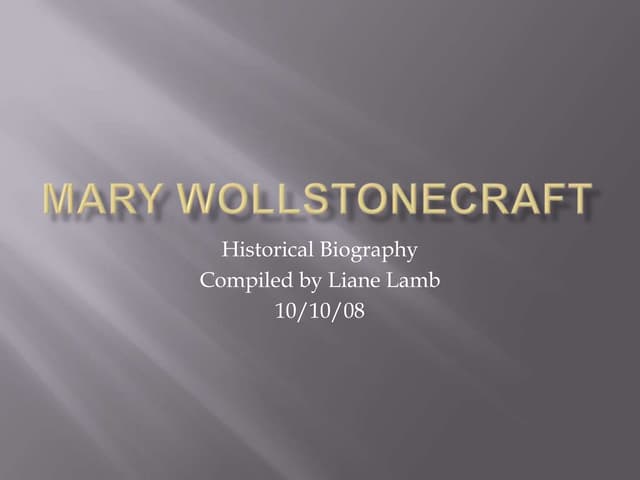
However, as Sylvana Tomaselli shows, a full understanding of Wollstonecraft's thought is possible only through a more comprehensive appreciation of Wollstonecraft herself, as a philosopher and moralist who deftly tackled major social and political issues and the arguments of such figures as Edmund Burke, Jean-Jacques Rousseau, and Adam Smith. Chapters on British radicalism and conservatism, French philosophes and English Dissenters, constitutional law and domestic law, sentimental literature, eighteenth-century periodicals and more elucidate Wollstonecraft's social and political thought, historical writings, moral tales for children, and novels.Ī compelling portrait of Mary Wollstonecraft that shows the intimate connections between her life and work Mary Wollstonecraft's A Vindication of the Rights of Woman, first published in 1792, is a work of enduring relevance in women's rights advocacy. In this collection of essays, leading international scholars reveal the intricate biographical, critical, cultural, and historical context crucial for understanding Mary Wollstonecraft's oeuvre. Just as impressive as her expansive range was the profound evolution of her thinking in the decade when she flourished as an author. In her brief literary career before her untimely death in 1797, Wollstonecraft achieved remarkable success in an unusually wide range of genres: from education tracts and political polemics, to novels and travel writing. No writer, except perhaps her political foe, Edmund Burke, and her fellow reformer, Thomas Paine, inspired more intense reactions.

.jpg)

Mary Wollstonecraft (1759-1797) was one of the most influential and controversial women of her age.


 0 kommentar(er)
0 kommentar(er)
